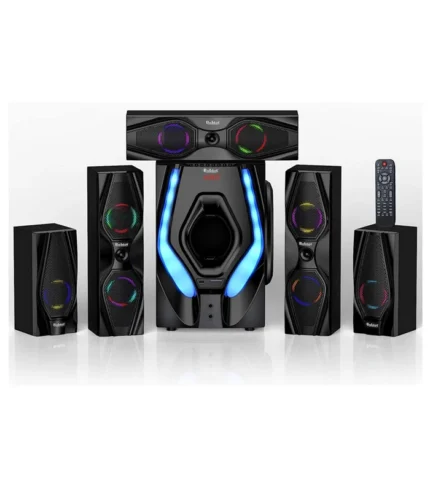Retro Video Game Console
Retro Video Game Console: In a world dominated by cutting-edge technology and hyper-realistic graphics, there exists a charming nostalgia for the simpler times of pixelated sprites and 8-bit melodies. This nostalgia has fueled a remarkable resurgence in retro video game consoles, breathing new life into classic gaming experiences. From the iconic Nintendo Entertainment System (NES) to the beloved Sega Genesis, retro gaming consoles have become a bridge between generations, offering both seasoned gamers and newcomers a chance to explore the roots of the industry. This article delves into the phenomenon of retro video game consoles, exploring their cultural significance, technological advancements, and enduring appeal.
The Rise of Retro Gaming:
The concept of retro gaming is deeply rooted in the collective memories of those who grew up in the golden age of video games, typically considered to be the late 1970s to the early 2000s. During this time, arcades thrived, and home gaming consoles revolutionized entertainment. Titles like Super Mario Bros., Pac-Man, and Sonic the Hedgehog became cultural icons, shaping the childhoods of millions around the world. However, as technology progressed, these classic games were overshadowed by more advanced consoles and blockbuster franchises.
Despite the march of progress, the allure of retro gaming never truly faded. In the early 2000s, emulators and ROMs allowed enthusiasts to relive their favorite games on modern hardware, but the experience lacked authenticity and often legality. It wasn't until the mid-2010s that major players in the gaming industry recognized the potential of tapping into this nostalgia market. Nintendo, in particular, spearheaded the resurgence with the release of the NES Classic Edition in 2016, followed by the SNES Classic Edition in 2017. These miniature consoles packed dozens of classic games into a compact, plug-and-play device, appealing to both seasoned gamers and newcomers alike.
Technological Advancements:
While the appeal of retro gaming lies in its nostalgic charm, modern technology has played a crucial role in revitalizing these classic experiences. Retro consoles like the NES Classic Edition and the Sega Genesis Mini utilize emulation to faithfully replicate the hardware and software of their predecessors. However, advancements in hardware and software emulation have resulted in improved performance, enhanced graphics, and additional features such as save states and customizable display options.
Moreover, the rise of FPGA (Field-Programmable Gate Array) technology has led to the development of high-fidelity retro consoles that aim to replicate the original hardware down to the finest detail. Devices like the Analogue NT Mini and the Mega Sg boast unparalleled accuracy and compatibility, allowing purists to experience their favorite games as they were meant to be played.
The Retro Gaming Community:
Beyond the technological advancements, the resurgence of retro gaming has fostered a vibrant community of enthusiasts, collectors, and preservationists. Online forums, social media groups, and conventions provide platforms for fans to share their passion, discuss favorite titles, and collaborate on homebrew projects and fan translations. The accessibility of retro gaming through platforms like YouTube and Twitch has also contributed to the community's growth, with content creators producing Let's Plays, reviews, and retrospectives that celebrate gaming's rich history.
Furthermore, the resurgence of retro gaming has sparked renewed interest in game preservation and archival efforts. Organizations like the Video Game History Foundation and the Museum of Art and Digital Entertainment work tirelessly to document, digitize, and preserve video game history for future generations. Through their efforts, rare and obscure titles are rescued from obscurity, ensuring that the legacy of retro gaming endures.
Cultural Impact:
The resurgence of retro gaming goes beyond mere nostalgia; it has had a profound cultural impact on the gaming industry as a whole. Major publishers and developers have taken note of the demand for classic experiences, leading to a resurgence of remakes, remasters, and spiritual successors to beloved franchises. Titles like "Streets of Rage 4," "Mega Man 11," and "Final Fantasy VII Remake" pay homage to their predecessors while introducing modern gameplay mechanics and visuals.
Moreover, the success of retro consoles and classic game collections has prompted developers to revisit their archives and re-release timeless classics on modern platforms. Digital storefronts like Nintendo eShop, PlayStation Store, and Xbox Live Arcade offer a vast library of retro titles, allowing players to rediscover old favorites and discover hidden gems.
Conclusion: The resurgence of retro video game consoles represents more than just a trip down memory lane; it embodies a celebration of gaming's rich history and enduring legacy. Through a combination of nostalgia, technological advancements, and community engagement, retro gaming has evolved from a niche hobby to a thriving cultural phenomenon. As new generations of players embrace the classics and industry veterans continue to innovate, the legacy of retro gaming will continue to inspire and entertain for years to come.
Also Read -




































Reviews
There are no reviews yet.